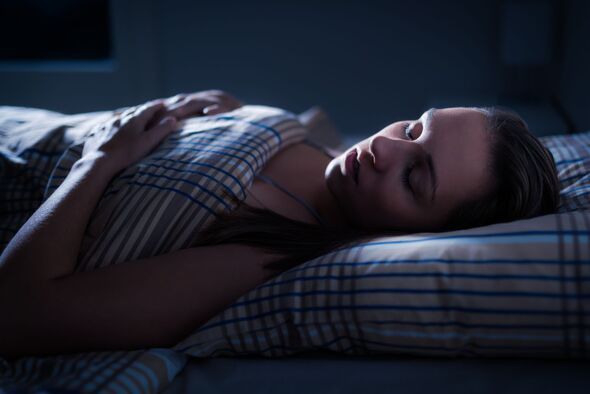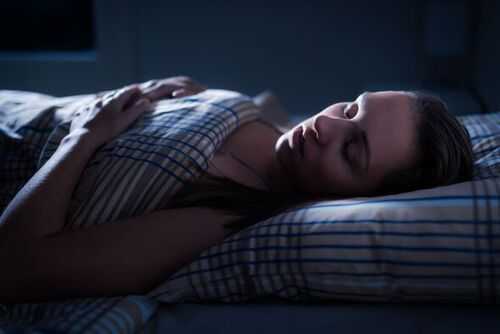

, such as heart disease, diabetes, obesity, depression, and stroke, in addition to making you feel sleepy the next day when you wake up in the middle of the night and have trouble falling asleep.
According to Hannah Trueman, lead nutritionist at My Body Fabulous and an expert in dietetic medicine, "missing even one or two nights can have noticeable effects on both the body and mind, impairing memory, focus, mood, and physical performance."
Stress and hormone issues are only two of the many possible causes of nighttime awakenings, but the foods you eat can have a significant impact on how well or poorly you sleep.
Experts say that these are the ones to be most cautious of.
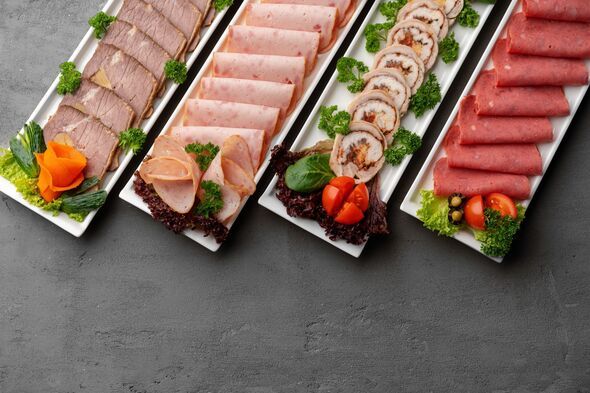
1. Processed meats
The majority of processed meats, including ham and salami, are extremely salty, which might dehydrate you.
This can cause restlessness and thirst, which are not good things while you're attempting to go asleep.
"Processed meats may also contain preservatives like nitrates, which can disrupt hormone balances and cause inflammation, which can negatively impact sleep," Hannah adds.
To minimize sleep disturbance, consume processed meats during lunchtime.
Furthermore, consider lean proteins like chicken or turkey for your evening meal.
"These meats are rich in tryptophan, which supports the production of melatonin - a hormone that helps regulate sleep," Hannah explains.
"Pairing them with a healthy complex carbohydrate, such as quinoa or sweet potato, can enhance tryptophan absorption and promote its relaxing effects."
Sandrine Olmi, a qualified Mind, Body, Eating Coach and licensed nutritional therapist, cautions that consuming a lot of salt or sodium may also increase your likelihood of waking up throughout the night to urinate.
According to a Japanese study presented at the European Society of Urology convention in London, those who consume less salt urinate less during the night.
For three months, they monitored patients who consumed a lot of salt and had trouble sleeping.
Scientists discovered that the number of trips to the toilet decreased from over twice a night to just one after advising them to reduce the quantity of salt in their meals.
Additionally, those who ate more salt reported using the restroom more frequently at night.
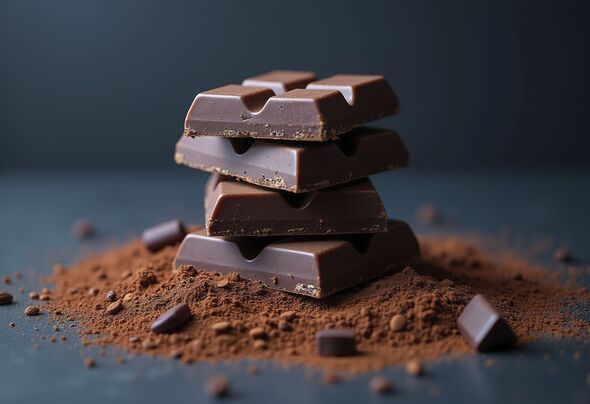
2. Dark Chocolate
Dark chocolate is a great after-dinner snack, but it may not be the best for your sleep.
"Dark chocolate contains magnesium, which is good for sleep, but it also contains caffeine," Sandrine says.
"A few squares is fine, but it's advisable to take it earlier in the day if you're a caffeine sensitive person.
"Caffeine taken six hours before bedtime has disruptive effects on sleep."
Hannah recommends replacing a few chocolate squares with yogurt and berries, as this should have less of an effect on sleep.
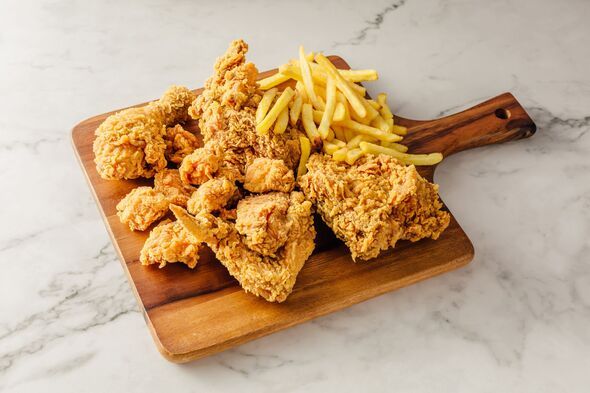
3. Fried Chicken and chips
Your body might not be as fond of fried foods as your taste buds.
"High-fat foods, such as fried chicken and chips, typically take longer to digest, potentially causing discomfort or heartburn when lying down, which can disrupt sleep," Hannah explains.
"Have hefty, fried things at lunch if you must.
"However, it's best to limit them in general as they contain saturated fats and can be more inflammatory for the body."
"Select grilled chicken with roasted sweet potatoes instead of fried foods," she continues.
This is less inflammatory, easier to digest, and better for your overall health.
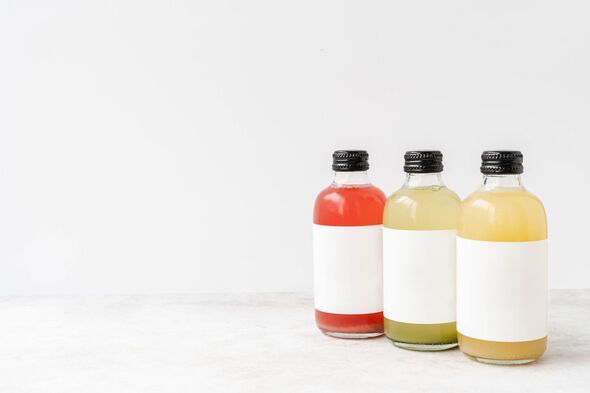
4. Kombucha
Kombucha is a fermented, caffeinated beverage produced from tea, sugar, bacteria, and yeast. It may not be the ideal choice in the evening because it might cause bloating and an energy increase.
"Again, if someone is sensitive to caffeine, it is best to consume Kombucha during the day," Sandrine advises.
Additionally, probiotics, gut-friendly bacteria, are present in kombucha.
"Excessive drinking is bad for sleep and can cause intestinal problems for certain people.
"Instead, go for herbal teas in the evening which do not contain caffeine."
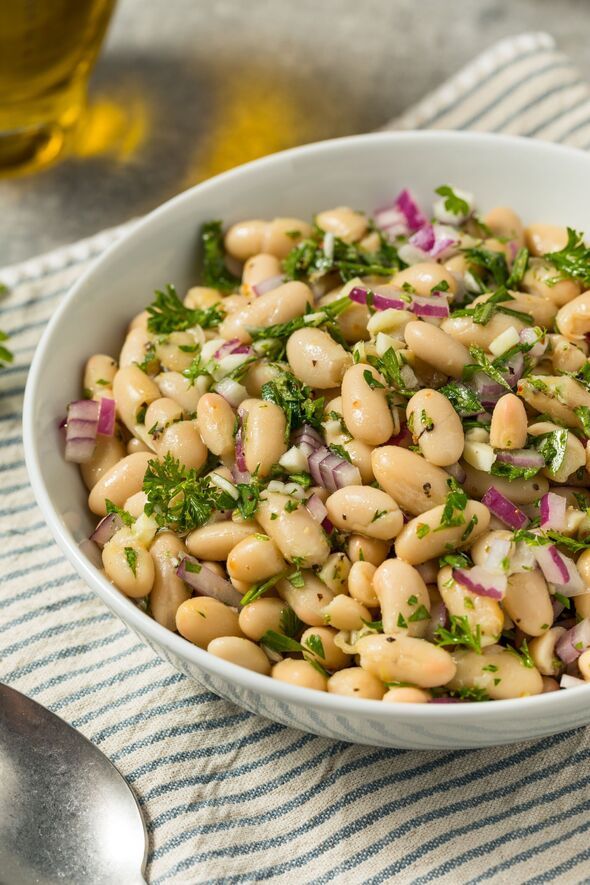
5. A high-fibre salad
Eating nutrient-dense, high-fiber salads shouldn't deter you, but timing is crucial because some people find that they interfere with their sleep, particularly if they contain raw vegetables like kale, spinach, and carrots.
Hannah explains, "They can cause bloating or gas."
"Eating right before bed might cause this discomfort, especially for people with delicate digestion.
"Save large salads for lunch, as your digestive system tends to be more active during the day when your metabolism is naturally higher."
Hannah recommends replacing your large dinner salad with a smaller serving of leafy greens dressed with a simple homemade dressing (such lemon juice, apple cider vinegar, olive oil, and sea salt).
"Salads made with roasted vegetables are also a great option, as cooked vegetables are typically gentler on digestion compared to raw veggies," she continues.
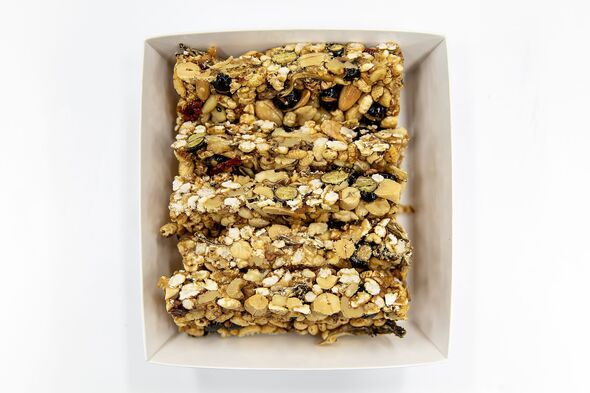
6. Protein bars
Trying to consume extra protein that will help you gain muscle? An easy method to do this is with a protein bar.
However, Hannah cautions that a lot of protein bars aren't really that high in protein and are instead packed with sugar and artificial sweeteners.
"This can spike and crash blood sugar levels," according to her.
This implies that you can have elevated blood sugar levels just before bed, which is the last thing you want when your body is supposed to be calming down.
Furthermore, processed foods and artificial sweeteners can cause gas and bloating in some people, which can make going to bed quite uncomfortable.
"Enjoy protein bars as a post-workout snack earlier in the day and choose good quality options with minimal additives and sugars," Hannah advises.
"Greek yoghurt with berries provides protein and supports gut health and may be a better option in the evenings."
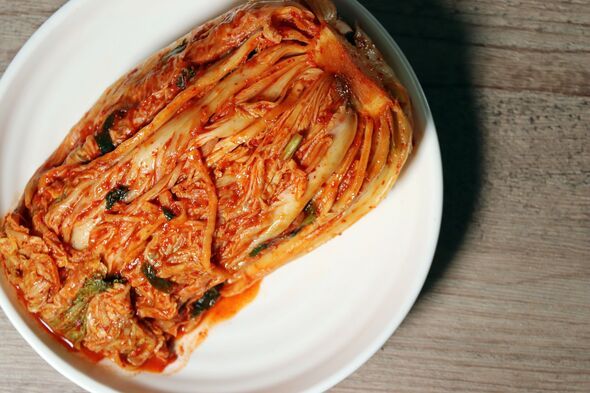
7. Pickles and kimchi
It has been proven that fermented meals improve gut health by increasing beneficial microorganisms.
Nevertheless, Hannah points out that: "Fermented foods can cause bloating and acid reflux in some people, which can disrupt sleep, especially for those with sensitive digestion or microbial imbalances like SIBO (small intestinal bacterial overgrowth)."
Keeping this in mind, limit your lunchtime intake of fermented foods like sauerkraut, kimchi, and pickles.
"A small serving of plain yoghurt in the evening can offer similar benefits for gut health, without the risk of bloating," Hannah explains.
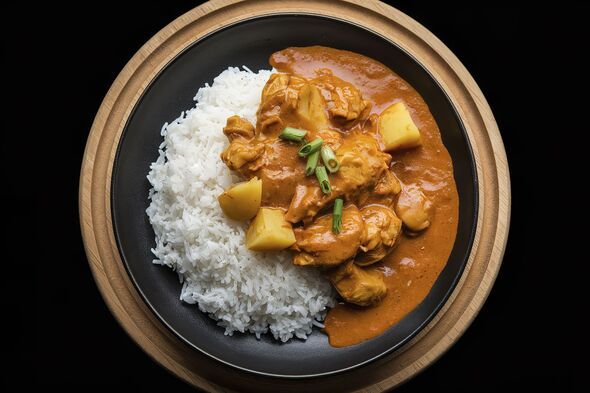
8. A spicy curry
A curry night on the weekend can seem nice, but you might want to try something else if you also want to get a good night's sleep.
"Eating spicy food can cause indigestion," suggests Sandrine.
With its strong component, capsaicin, chilli aggravates burning and pain in the abdomen in those who already have digestive problems.
"Try to eat your curry early if you are determined to have it.
Additionally, choose a light alternative, like a korma, if you are sensitive.
"Research shows that having our last meal at least two hours before going to bed is a good idea.
"Any less than that, we may experience disrupted sleep due to poor digestion."
